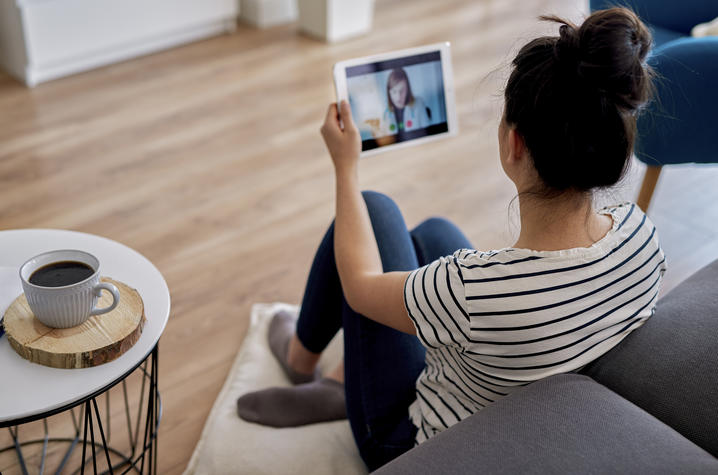Help for Those Struggling with Recovery During COVID-19

The University of Kentucky Public Relations & Strategic Communications Office provides a weekly health column available for use and reprint by news media. This week's column was put together by experts at the Kentucky Injury and Prevention Research Center (KIPRC), a partnership between the UK College of Public Health and Kentucky Department for Public Health. KIPRC created the real-time substance use disorder treatment website FindHelpNowKY.org.
LEXINGTON, Ky. (June 15, 2020) — The COVID-19 pandemic has created a time of uncertainty and anxiety for most Kentuckians. Being afraid of the unknown and having a heightened sense of anxiety are normal feelings.
While social distancing is the most effective form of COVID-19 prevention, it can lead to loneliness and interruptions in daily routine and can create a loss of purpose. These circumstances can make self-care very difficult, and while these feelings can be quite painful, most of us recognize they are only temporary.
However, for individuals in recovery, these circumstances might put recovery at risk because social distancing can create barriers against relied-upon sources of support. Group meetings, a hug from a loved one, or an emergency meeting with a counselor may not be possible.
Those in recovery shouldn’t panic. With the strength used to achieve and maintain recovery along with resources from the recovery community, this is another challenge that can be overcome.
If you believe your recovery is at risk, here are a few ways to reset your focus:
- Participate in online meetings. Several AA and NA groups offer virtual meetings. Find a meeting and consider dialing in. Engage online to hear success stories, find encouragement from peers, talk through negative thoughts, and pick up new suggestions for maintaining recovery.
- Call or FaceTime loved ones. Reach out to someone from your support system, especially if you feel overwhelmed or anxious. A video chat proves especially helpful by providing a sense of connection without placing anyone at risk.
- Journal. Expressing your feelings on paper is a great way to calm your emotions, anxieties, and frustrations. Instead of acting on impulses, write them down and develop a strategy to work through the situation.
- Spend time outside. Social distancing is important, but it doesn’t mean you have to stay indoors all day. Fresh air and sunlight can do wonders for your mindset. Plant a garden, fly a kite, read a book, or meditate. Even if it’s only for a few moments, deep breaths will give you a renewed sense of peace.
- Stay active or start an exercise routine. Exercise is a great way to boost your mood. Try yoga, walking, bicycling, or strength training and commit to it as often as you can. Many gyms are offering free virtual classes. Take advantage!
- Take breaks from the news. Binge-watching, reading, or listening to stories about the pandemic can cause unnecessary stress. Instead, moderate your news consumption and ensure your information is coming from reputable sources. Also, be wary of heated debates on social media. These situations are often frustrating and chances are you are unlikely to sway another’s opinion.
Remember, this is just another challenge that can be overcome. Continue to focus on your recovery and take everything day by day, hour by hour, or minute by minute. You are strong and will get through this difficult time.
If you need help finding treatment for substance use disorder, visit FindHelpNowKY.org to get started.
As the state’s flagship, land-grant institution, the University of Kentucky exists to advance the Commonwealth. We do that by preparing the next generation of leaders — placing students at the heart of everything we do — and transforming the lives of Kentuckians through education, research and creative work, service and health care. We pride ourselves on being a catalyst for breakthroughs and a force for healing, a place where ingenuity unfolds. It's all made possible by our people — visionaries, disruptors and pioneers — who make up 200 academic programs, a $476.5 million research and development enterprise and a world-class medical center, all on one campus.




